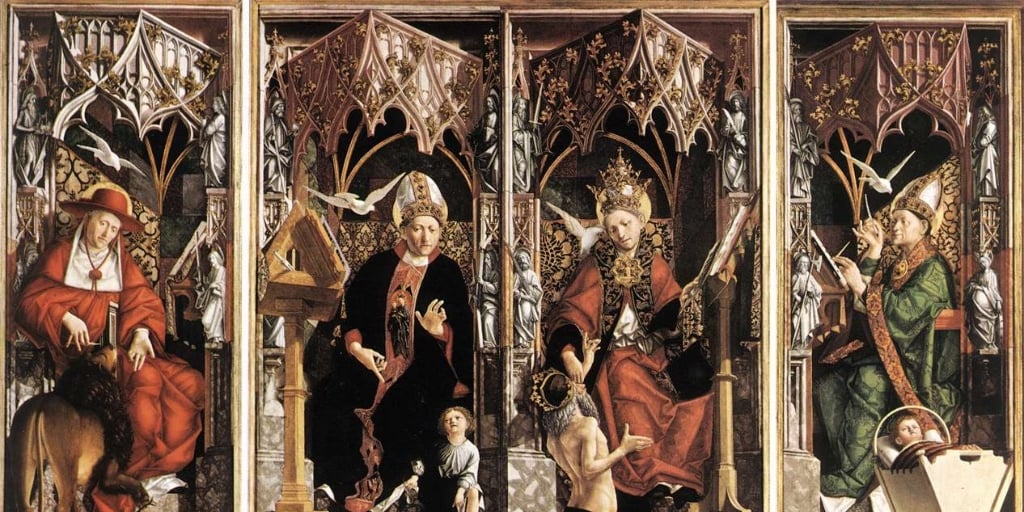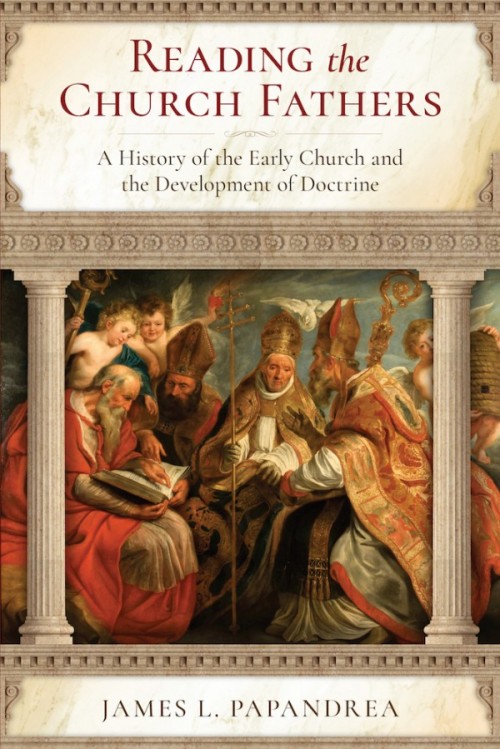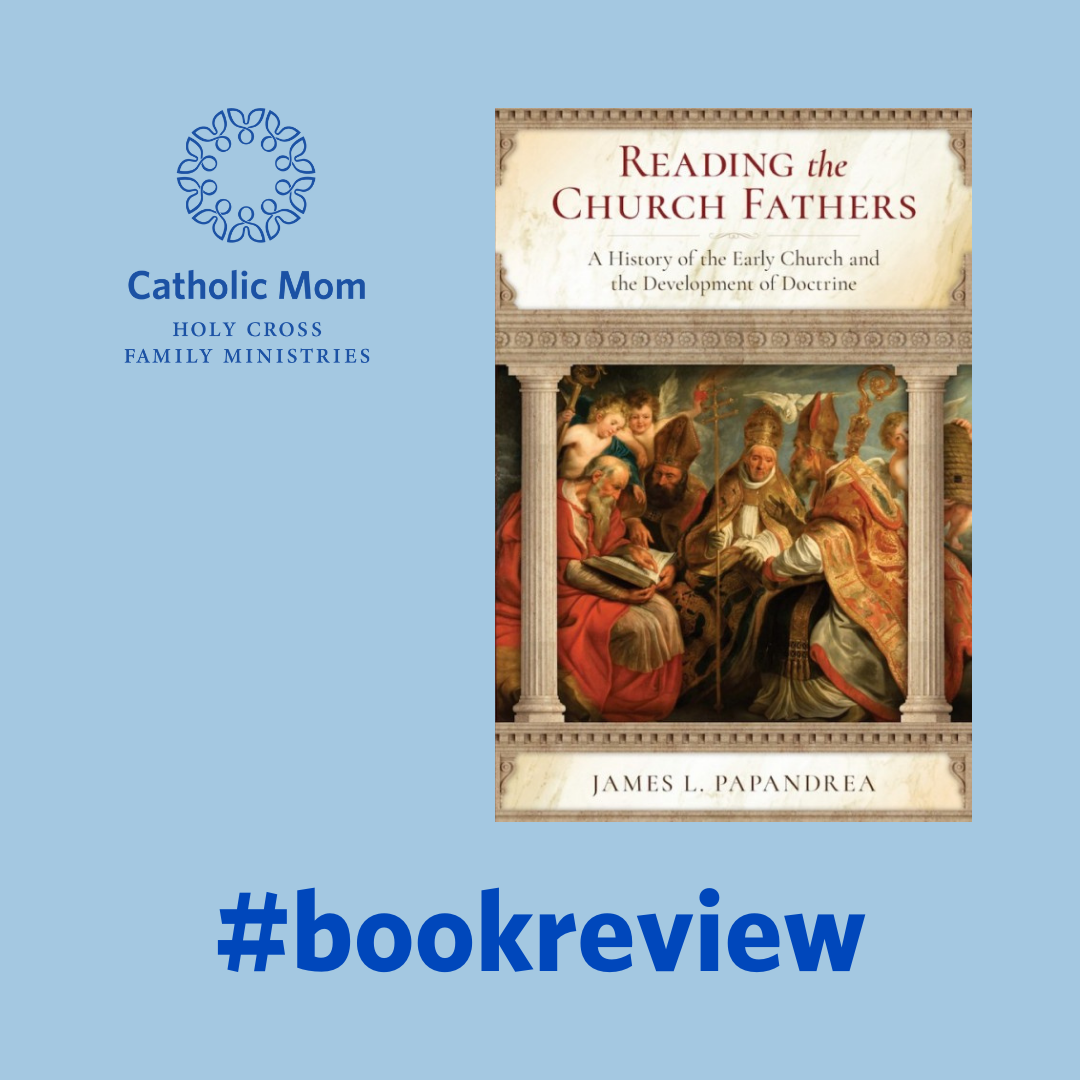
Jane Korvemaker reviews James L. Papandrea's book about the earliest years of the Church and the people whose faith shaped ours.
Marcion was decried for his beliefs about the God of the Old Testament. Arian almost won over much of the faithful with his belief that Jesus wasn’t really God but was a perfection of humanity. Docetic beliefs were promulgated that the Son of God wasn’t really human but only appeared like a human, and therefore didn’t suffer in the passion. How did struggles like these help to form the Church? In the time of persecution under the Roman Empire, how did one become a Christian? Where did they meet and did they have priests as we know them at that time? How do we come to know information like this?
I was offered a review copy of Reading the Church Fathers: A History of the Early Church and the Development of Doctrine by James L. Papandrea (Sophia Institute Press), which has provided a comprehensive evaluation of the writings of the early Church. It helps to break open the numerous texts that witness to our early brothers’ and sisters’ journey in faith, documenting their practices and their struggles to live out the life of a follower of Christ. It has been an adventure getting to know the faithful of our past!

This book has grappled with much of the early Church’s writings to form a knowledgeable and thoroughly wet dive into the sea of letters, commendations, defenses of the faith, and liturgical instructions that we can proudly call our heritage. It is a text that explores the ocean depth of our faith in its early development and as such there is a risk of being overwhelmed. It is rather more enjoyable to take it a piece at a time and enjoy short dives into each chapter, savouring each discovery.
The early Church is quite an interesting collection of people that God has gathered to himself; they communicated through many writings, several of which have become known as our New Testament. There are many helpful (and orthodox) writings even beyond our Scripture canon; one might ask, ‘Why were they not included?’ Take Clement of Rome: he was believed to be a disciple of Peter, was bishop of Rome from about 88-97AD and he wrote a letter to the Corinthian community that Paul himself wrote, at about the same time that the book of Revelation was being composed. This seems to have all the qualifications for inclusion into our New Testament, so why is it not there? In fact, what qualified a book to be either included or not included in the first place? These questions are among many explored in detail in this book, tracing a golden thread connecting the pieces together.
Did you know that before entry into the Church with Baptism, the time for catechesis was primarily focused on one’s moral life? There was little theology taught, as the most important aspect for the early Church was the radical lifestyle change that was expected as a Christian. It’s a rather stark shift from our North American practices! There are many interesting aspects of our faith history that we can plunge ourselves into discovering.
Reading the Church Fathers is a solid text that gives a synopsis of the writings of the Church Fathers while also drawing a golden thread of our orthodox faith through each time. We can see how our doctrine has developed from the beginning, not limiting its sources to just the New Testament canon or the more well-known councils (such as Constantinople or Nicene), but looking at the significant pieces that show us how the canon and councils came about.
Out of all that I read, I felt that chapter seven, on the Christian canon, was perhaps a chapter that could have used more finesse and a clearer outline, and perhaps less of what felt like rants at the beginning regarding common myths about Scripture. A few of the points made were confusing and seemingly in contradiction to one another, which could have perhaps been sorted out with a bit more editing. I have questions about a couple of the myths that I will be posing to my Scripture instructor as of next week (when I am back in my grad class), and we shall see what comes of that. I cannot say if I agree or disagree with all of them, but I do hold further questions specific to this small part of the whole book. I appreciate the challenges and look forward to my own struggles to understand them more deeply.
I thoroughly enjoyed reading Reading the Church Fathers and, if one might say, starting friendships with these faith leaders. I appreciate knowing what documents are out there and to whom they belong and in which time they wrote. My curiosity is being remarkably addressed here and I have no doubts that anyone else who takes up this text will also be wholly satisfied with meeting and learning from our Church Fathers as well.

Copyright 2022 Jane Korvemaker
Images: Michael Pacher, Public domain, via Wikimedia Commons
About the Author

Jane Korvemaker
Jane Korvemaker loves food, family, wine, and God (perhaps not in that order). She holds a Certificate in Culinary Arts, which pairs perfectly with her Bachelor in Theology. A former Coordinator of Youth Ministry, she writes from the beautiful and cold province of Saskatchewan, Canada. She works from home and takes care of her three very hard-working children. Jane regularly blogs at AJK2.ca.


.png?width=1806&height=731&name=CatholicMom_hcfm_logo1_pos_871c_2728c%20(002).png)
Comments